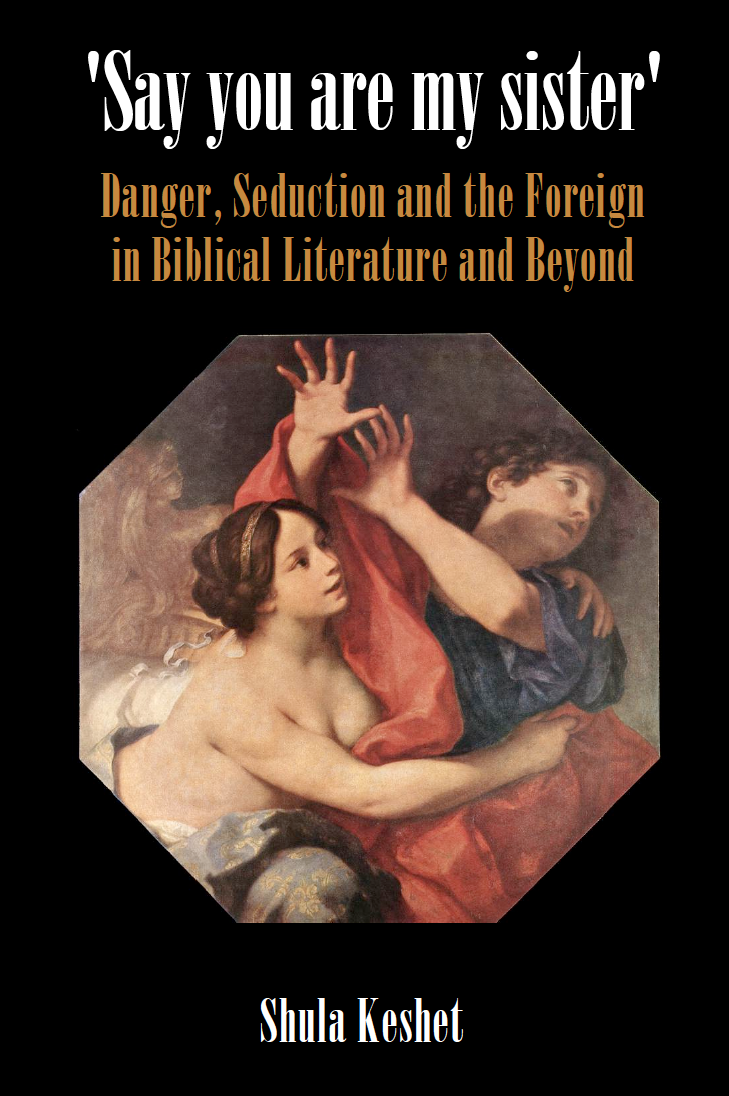‘Say You Are My Sister’: Danger, Seduction and the Foreign in Biblical Literature and Beyond
Published: Oct 2013
£50.00
Throughout biblical and Jewish literature we encounter a repeated story of a Hebrew or Jewish character who becomes involved in a dangerous erotic relationship. The sexual tension in these tales articulates the ambivalence between the national identities of the character and of the foreign other.
The first exemplification of the topos occurs in Genesis, where the matriarchs Sarah and Rebekah are handed over (or almost so) by their husbands to a foreign king. The other biblical cases are those of Joseph, who experiences the danger of seduction by Potiphar's wife, and Esther, who is taken by force into the harem of the Persian emperor.
In modern Hebrew literature, the theme reappears in the short story by the Nobel Prize winner S.Y. Agnon, 'The Lady and the Pedlar' from 1943, in which the Jewish pedlar is at risk of becoming the prey of a foreign cannibalistic woman, and in the novel Inta Omri (1994) by the poet-author Smadar Herzfeld, which describes a desperate love affair between an Israeli woman and a Palestinian man against the backdrop of the Intifada in the late 1980s.
Between the chapters devoted to these works lies a discussion of the film by the Swedish director Ingmar Bergman, The Touch (1971), the story of a Jewish archaeologist who falls in love with a Swedish woman, which Keshet reads as another instance of the same theme, but this time as a metaphor of Jewish —Christian relations from the perspective not of the Jewish character but of the foreign other.
‘Say You Are My Sister’: Danger, Seduction and the Foreign in Biblical Literature and Beyond
£50.00
Throughout biblical and Jewish literature we encounter a repeated story of a Hebrew or Jewish character who becomes involved in a dangerous erotic relationship. The sexual tension in these tales articulates the ambivalence between the national identities of the character and of the foreign other.
The first exemplification of the topos occurs in Genesis, where the matriarchs Sarah and Rebekah are handed over (or almost so) by their husbands to a foreign king. The other biblical cases are those of Joseph, who experiences the danger of seduction by Potiphar's wife, and Esther, who is taken by force into the harem of the Persian emperor.
In modern Hebrew literature, the theme reappears in the short story by the Nobel Prize winner S.Y. Agnon, 'The Lady and the Pedlar' from 1943, in which the Jewish pedlar is at risk of becoming the prey of a foreign cannibalistic woman, and in the novel Inta Omri (1994) by the poet-author Smadar Herzfeld, which describes a desperate love affair between an Israeli woman and a Palestinian man against the backdrop of the Intifada in the late 1980s.
Between the chapters devoted to these works lies a discussion of the film by the Swedish director Ingmar Bergman, The Touch (1971), the story of a Jewish archaeologist who falls in love with a Swedish woman, which Keshet reads as another instance of the same theme, but this time as a metaphor of Jewish —Christian relations from the perspective not of the Jewish character but of the foreign other.


